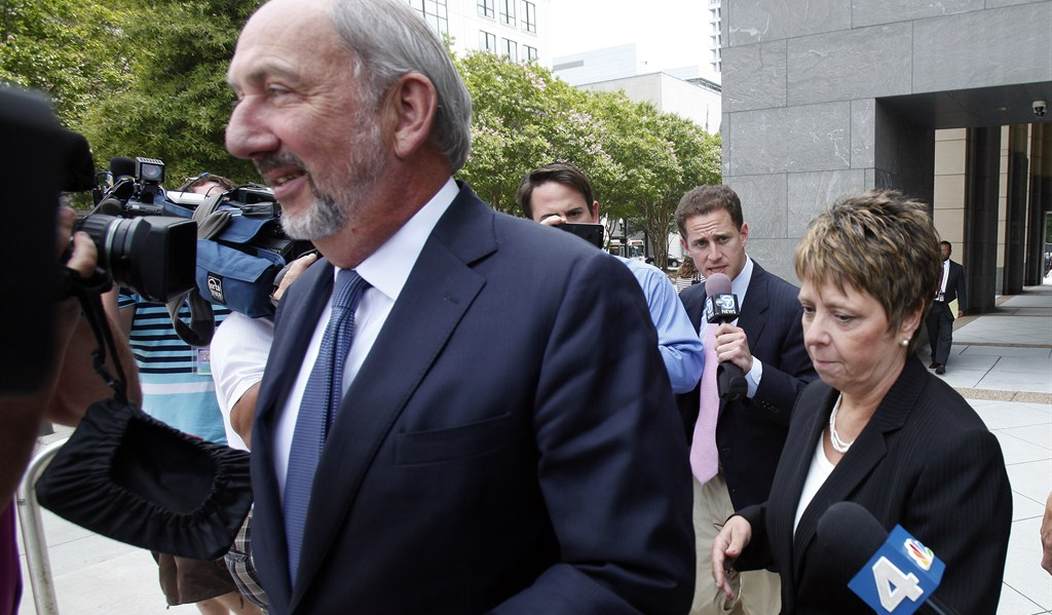… the Wall Street Journal? Not institutionally, but the defense of asset forfeiture in the conservative outlet’s opinion section had to come as a shock to its readership. Former deputy Attorney General George Terwilliger IIII, who served primarily in the George H. W. Bush administration, made the case for seizures as a focused and necessary tool to curb “violence and drug trafficking afflicting American cities and towns”:
Every day brings news of American families devastated by violence or drug use. Overdoses are a common occurrence. These tragedies are the work of criminal gangs that flood the streets with drugs and turn urban cores into combat zones. Such gangs exist for one simple reason: to make money.
Trafficking drugs, firearms and human beings is a means to their enrichment. Gang leaders get the cash but often evade prosecution by remaining distant from the provable dirty work. Taking away their money is therefore as important as seizing their contraband and putting their minions in prison.
Of course it is — when they’re actually found guilty of that conduct. What we’re discussing here, however, is asset forfeiture before a trial takes place — and sometimes without a trial ever taking place. Terwilliger misses the big constitutional step between evidence collection and punishment, and argues that the nature of the crime requires preventive seizure without having to meet the proper level of proof. This is just an argument that the ends justify the means, an approach against which the Constitution safeguards us by providing for due process.
Terwilliger makes the same mistake in arguing that Sessions has improved asset forfeiture protections:
At the same time, it’s important to protect innocent people from erroneous seizures. Mr. Sessions’s new guidelines say that state or local agencies seeking forfeiture under federal law must demonstrate probable cause within 15 days of the seizure. The sponsoring federal agency must notify the property’s owner within 45 days, so he can challenge it, including by going to court. Both of these time lines are twice as fast as required by law. And the probable-cause standard is the same one police have to meet before making an arrest or getting a search warrant.
It’s still the same problem, only dressed up a little more nicely. The constitution provides for probable cause for arrests and seizure of evidence, but criminal punishment requires a finding of guilt beyond a reasonable doubt. Arrests under probable cause do not forfeit liberty entirely, for that matter; most crimes allow for release prior to trial, either on “own recognizance” or on bail set to ensure that the accused shows for his trial and no higher. Attempts to set bail too high can be challenged on grounds that it assumes guilt and acts as premature punishment. If funds or assets are material evidence in a prosecution, they don’t get forfeited — they get frozen.
Asset forfeiture is expressly punitive; Terwilliger argues for it on that basis at least implicitly, saying it’s necessary to disincentivize people from taking actions of which they are only accused. In cases of forfeiture, the accused has to essentially prove themselves innocent in order to get their possessions back, even if the criminal case never goes to court. As Terwilliger himself notes, the accused have to “challenge it, including by going to court,” forcing a reversal of the presumption of innocence regardless of how fast that process goes under Sessions.
In our constitutional form of self-governance, no person’s life, liberty, or property should be at risk without full recourse to due process of law. Asset forfeiture ahead of criminal conviction is nothing more than a naked abuse of power and a miscarriage of justice no matter the outcome of the case. It’s long past time to end the practice, at the federal and state levels.








Join the conversation as a VIP Member